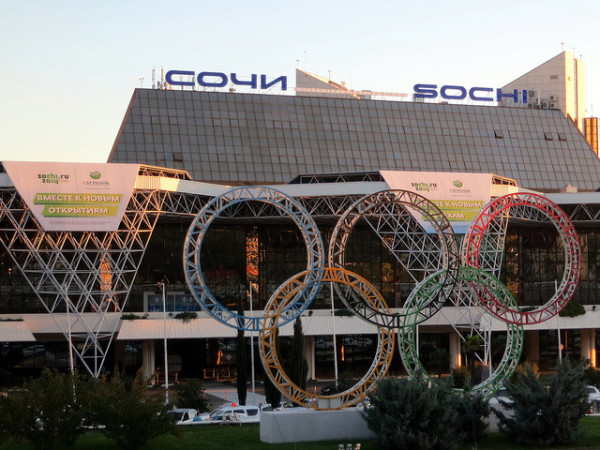Security concerns surrounding the Winter Games that begin Friday in Sochi are regaining steam amid recent reports of kidnap threats against athletes.
Earlier this week, the Austrian Olympic Committee announced it had received letters containing a kidnap threat against two of its female athletes. Threatening messages were also sent last month to U.S. Olympic Committee and other countries, warning tourists against attending the games.
The U.S. will be well-represented in Sochi, with 230 athletes, 270 coaches and more than 10,000 spectators expected. The U.S. committee has said that State Department security officials will accompany athletes to and from their events and be responsible for evacuating Americans in case of an attack by insurgents. Still, some teams and family members have invested in additional security precautions.
The U.S. ski and snowboard teams, for example, have hired Global Rescue, a Boston-based private company specializing in security and medical evacuation. The firm will “provide life-saving medical evacuations and other critical emergency services to skiers and their families,” said Global Rescue in a statement.
Global Rescue memberships for combined security and medical evacuation services start at $225 for a seven-day trip, said Sam Highley, senior manager of response services.
Some teams are also taking cybersecurity precautions. Coaches of the U.S. biathlon team purchased pricy satellite phones that will allow them to make phone calls in case increased cellphone call volumes overload terrestrial network capacity.
The satellite phones, priced at an average of $1,500, are equipped with a programmable emergency contact feature so coaches can seek help at the push of a button, said Brent Thomason of satellite communications company Ground Control. But the user must be outside or next to a window with a clear view of the sky to connect with a signal from a low-orbiting satellite, Thomason said.
Athletes and coaches aren’t the only ones taking precautions. After news was released last month about Russian authorities looking for “black widow” suicide bombers, the State Department issued an updated travel advisory encouraging all Americans traveling to Sochi to “consider purchasing private medical evacuation and/or repatriation insurance.”
The updated advisory was in response to December’s two suicide bombings in nearby Volgograd, for which an Islamic militant group claimed responsibility.
“Medical capacity and infrastructure in the region are untested for handling the volume of visitors expected,” the statement said.
Hundreds of spectators have booked Global Rescue’s services, which differ from the travelers insurance they might purchase if the Winter Games were in a less risky region.
Rather than simply reimburse travelers for costs incurred from medical treatment or evacuation during a crisis, the firm deploys its own former military personnel and doctors to the scene, said Highley.
International SOS, a travel and medical security company, is also providing services in Sochi including access to an emergency hotline. The hotline has a service center in Moscow, staffed with regional experts who will provide and medical and security information in a crisis. Members have access to the 24/7 hotline via phone, text and email. Membership services for an individual traveling to Sochi start at around $80 for a 10-day trip.
“Preparation is key,” said SOS Vice President John Rendeiro. “We are telling people to remain vigilant, not just in Sochi but in surrounding areas.”
Rendeiro also advises travelers not to linger in targeted areas like train stations longer than necessary.
Russian President Vladimir Putin has ordered a $2 billion security perimeter surrounding Sochi. The “ring of steel” comprises roadblocks, check points, and 50,000 Russian military and law enforcement officials. Though Putin has declined U.S. military assistance, the Department of Defense has announced two naval warships will be in the nearby Black Sea, along with several aircraft on standby in Germany.
“If we need to extract our citizens, we will have appropriate arrangements with the Russians to do that,” Defense Secretary Chuck Hagel said last month.
Despite the contingency planning, some athletes’ families are staying home.
Fred Evans, father of Chicago’s Olympic bobsledder Aja Evans, told The Washington Post that he will not be traveling to Sochi as originally planned, although other family members have kept their plans. Instead, Evans told the Post he will host a viewing party.
Not everyone is worried, however. Chris Goepper, father of 19-year-old freestyle skier, Nick, said he is “not at all” concerned. The Lawrenceburg, Ind., resident said his family is not paying for any extra precautions.
“We are confident that everything will work out safely and the Olympic Games will be a fantastic event,” Goepper said.






